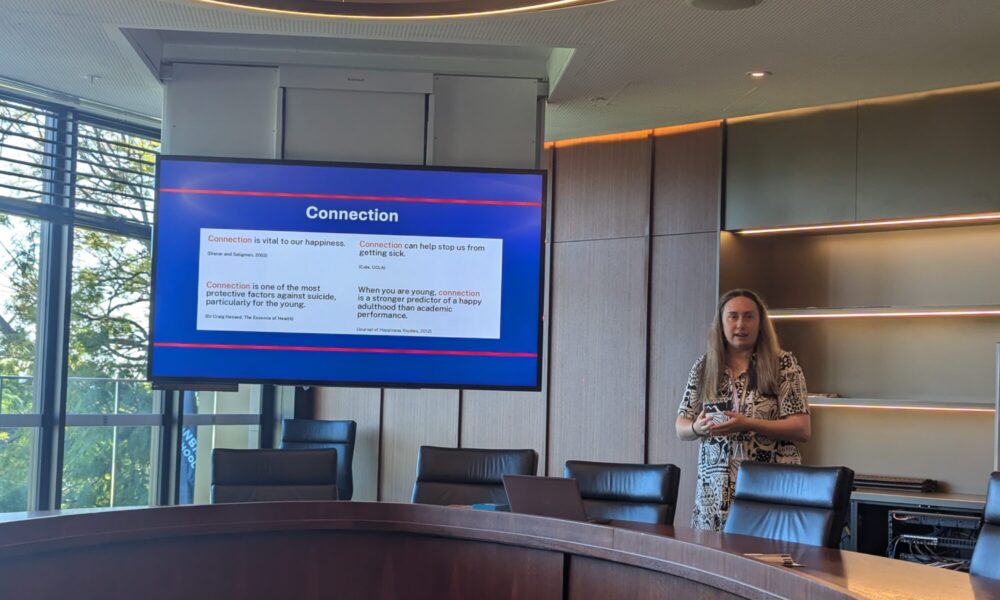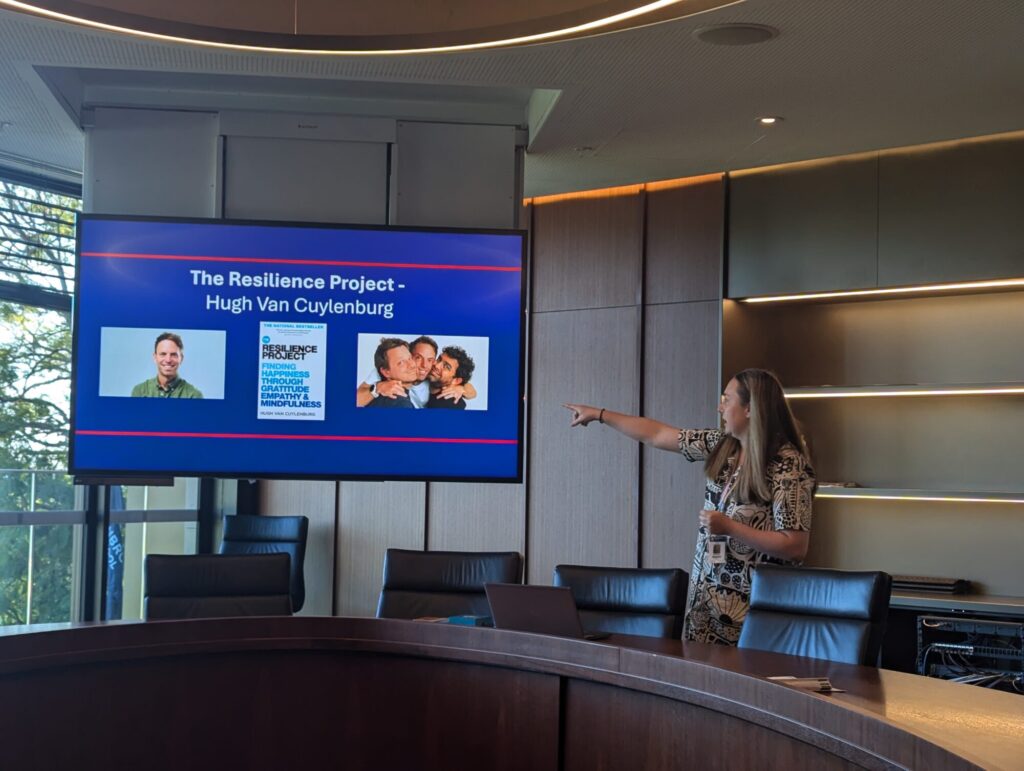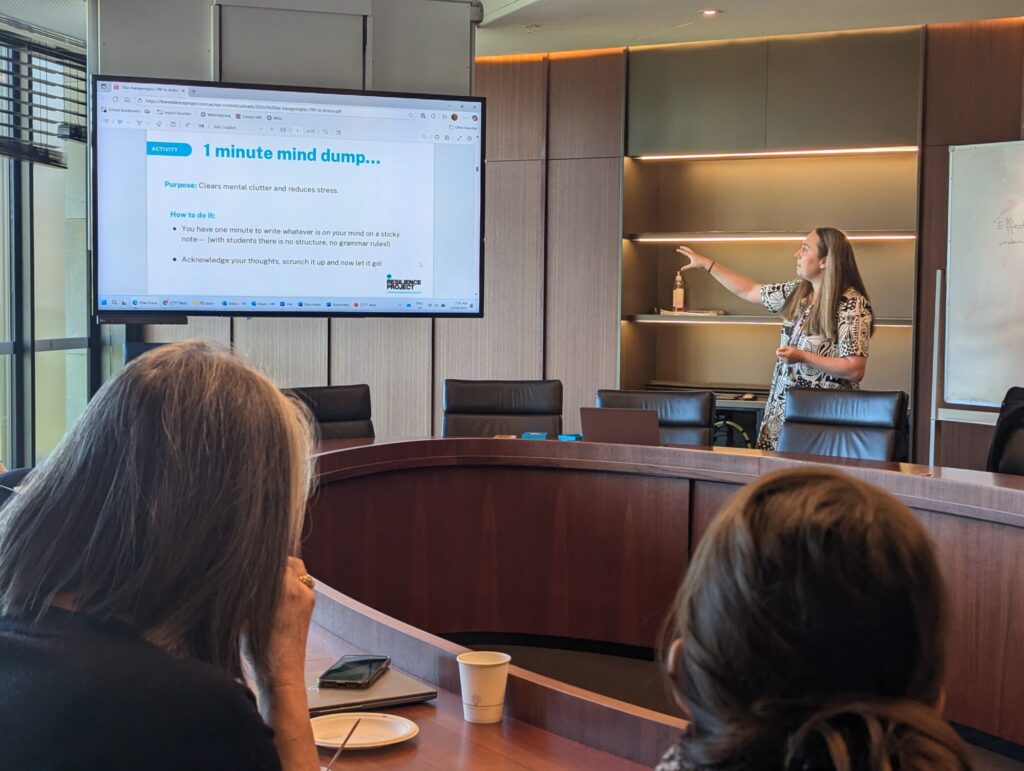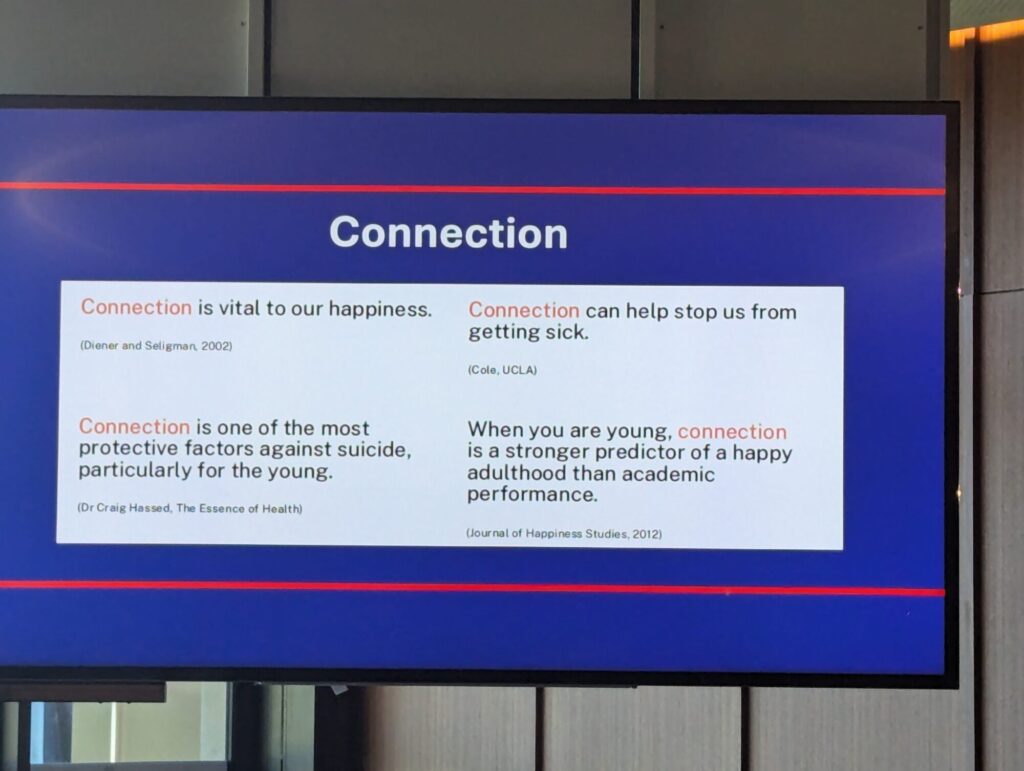
The Resilience Project – Strategies to Develop Students’ Gratitude, Empathy and Mindfulness
“How do we help young people bounce back from setbacks, stay connected, and thrive?” That was the question at the heart of last week’s Cranbrook Teachers Talking Teaching (CTTT) session, where Hannah Bamford shared her insights from The Resilience Project Teacher Seminar. The session explored how schools can embed simple, everyday practices that make a profound difference to student wellbeing and resilience.
At the heart of The Resilience Project are the principles of Gratitude, Empathy, and Mindfulness (GEM). Staff reflected on how these practices can help students notice positives in their lives, strengthen connections with others, and develop strategies to manage stress and uncertainty. By modelling and encouraging these habits, teachers play a vital role in supporting both wellbeing and learning outcomes.
Hannah also spoke about the importance of vulnerability and connection. When teachers share authentic stories and create safe spaces for students to express themselves, it fosters trust and belonging. This strengthens resilience—enabling students to bounce back from challenges and approach learning with greater confidence.
Several practical strategies were explored, including encouraging students to keep gratitude journals or share “three things that went well” each day, using empathy-building activities such as perspective-taking discussions and kindness challenges, and weaving mindfulness into lessons through short breathing exercises or moments of stillness. Staff also considered ways to build emotional literacy, by normalising conversations about feelings, and rituals of connection such as check-ins or end-of-day reflections to promote belonging and shared responsibility.
The key message was that resilience is not an innate trait but a skill that can be cultivated. Through consistent, intentional practices woven into everyday classroom life, we can empower students not only to cope with challenges but to thrive academically, socially, and emotionally.



Hannah Thomas
Director of Professional Learning
